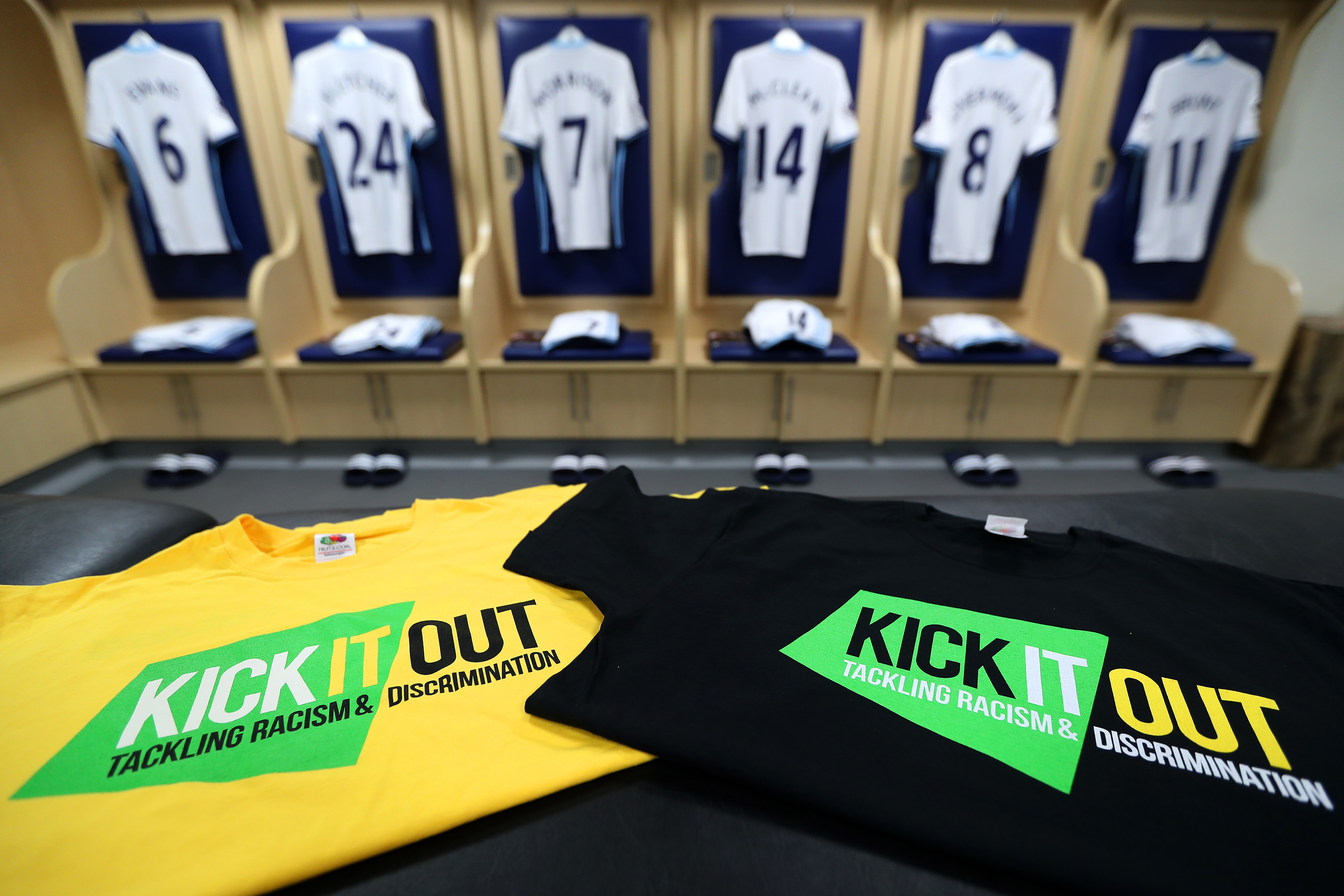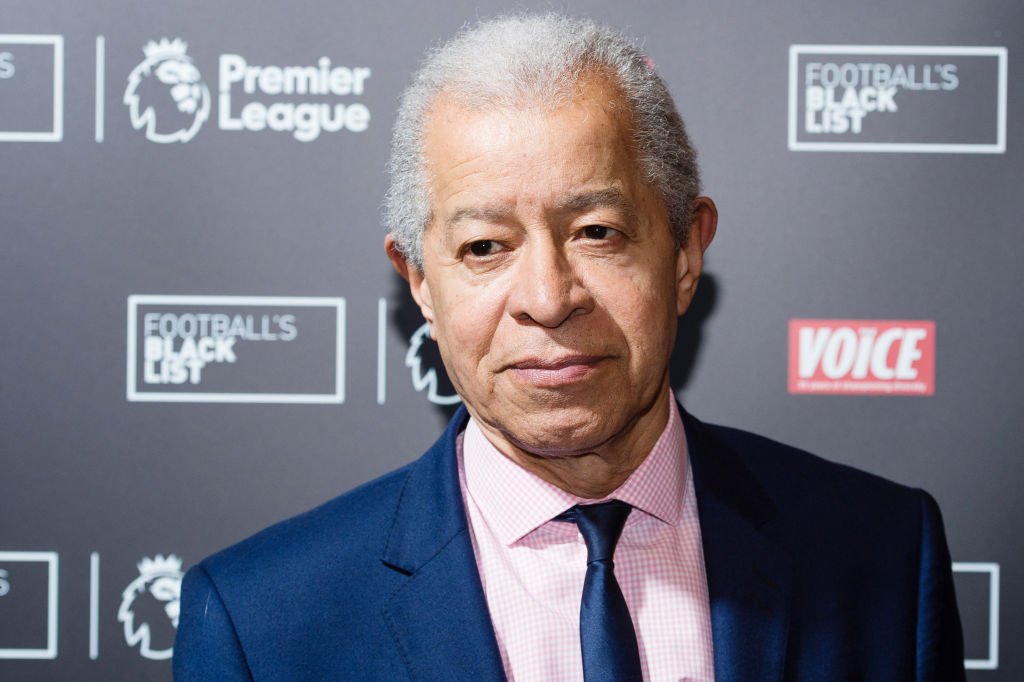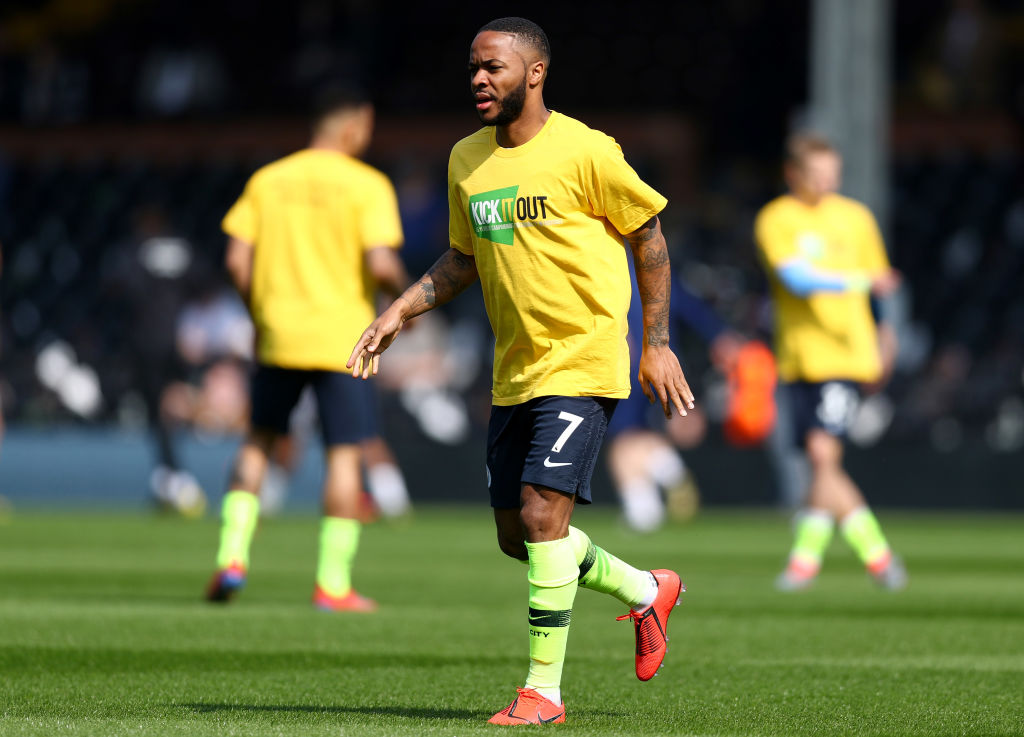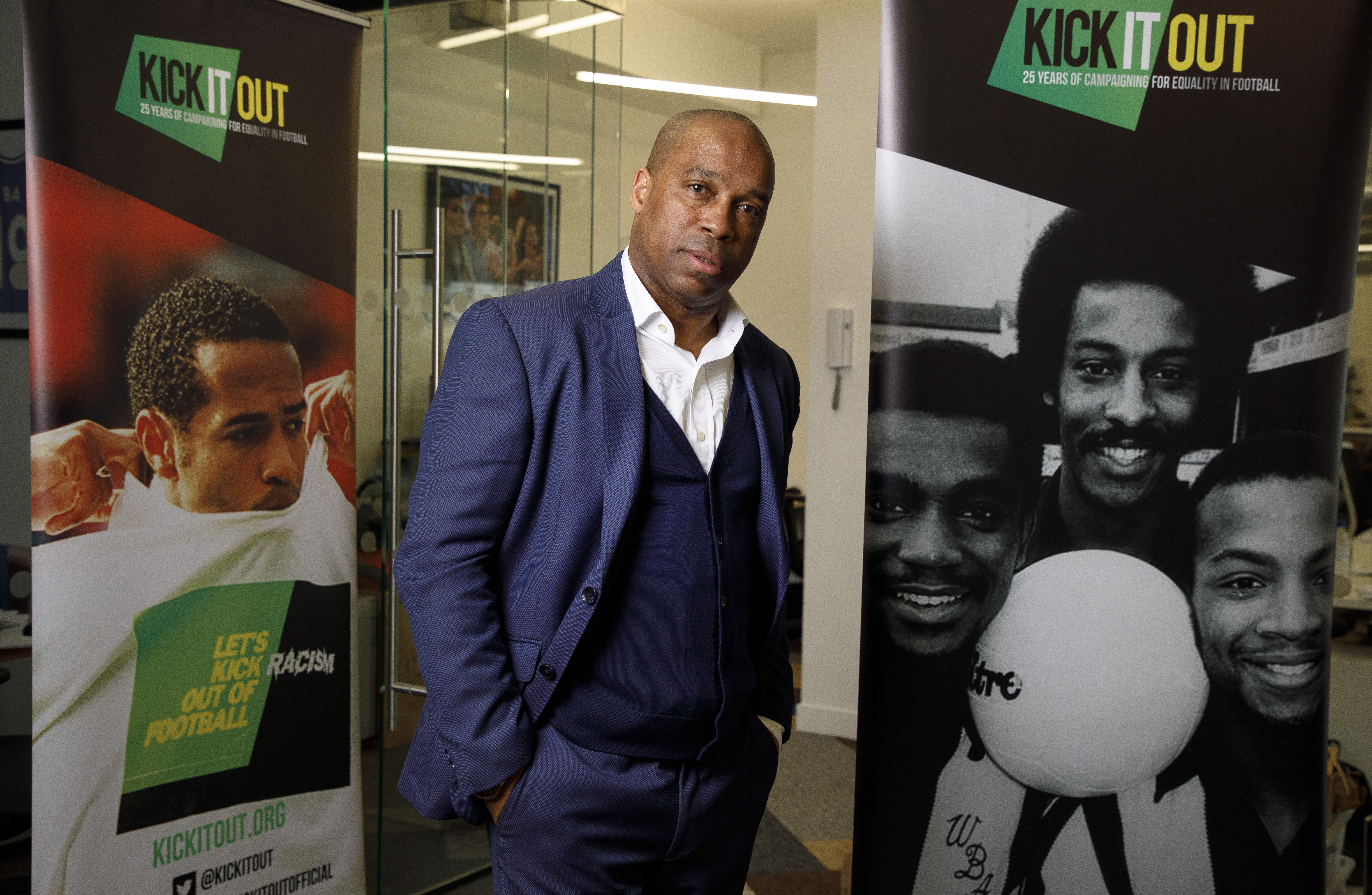
“Do you know what the f**k we’re going to be doing?” Ben Tegg asked his new boss before starting at Kick It Out. “No,” was the answer. “We’ll work that out.” Four years after its foundation in 1993, Tegg became Kick It Out’s second member of staff. His new boss, Piara Powar, was the first.
The anti-discrimination charity would become a pioneer in global football, but its humble roots can be traced back to a cafe in Angel, London, where Tegg and Powar met for their first day on the job in 1997. The organisation had ‘expanded’ from just a campaign (Let’s Kick Racism Out of Football) to Kick It Out, the fully-fledged body we know today, to tackle all forms of discrimination.
Awaiting them was a bank account, a new logo, and a 10x10ft office in the Business Design Centre, a sprawling exhibition space a mile south of Arsenal’s Emirates Stadium.
Ahead of them lay a long future of tireless campaigning on only a shoestring budget, brushes with footballing giants and fierce public criticism. But before all that could begin, Tegg and Powar had an important task to complete: working out what the f**k they would be doing.
The central issue Kick It Out face as an organisation is that the bulk of their funding comes from the authorities they exist to pressurise, and their independence can be compromised by the practicalities of simply staying afloat.

“There has to be some empathy when it comes to Kick It Out,” says Anton Ferdinand, his frustration balanced with understanding and a dose of admiration. “They’re controlled by the governing bodies of football because their money, ultimately, is through those governing bodies. If Kick It Out speak too much, or speak in a way that isn’t liked by the governing bodies, they’re in danger.”
“You could never be totally independent because you have a dependency,” the late Lord Herman Ouseley, former chair of the Commission for Racial Equality (CRE), who formed the Let’s Kick Racism Out of Football campaign back in 1993, told FourFourTwo last year. Lord Ouseley passed away earlier this month, aged 79, with our interview one of the last that he conducted about his role with Kick It Out.
“They [the governing bodies] all have an expectation when they give you this pittance that you’ll do certain things and do them in a way that will be satisfactory to them. If not, there’s probably a penalty.”
Ouseley said he was threatened with legal action after writing a report that critiqued one major body, and Powar, who departed in 2011, remembers being called in for a Premier League meeting to discuss “what we were doing and what we’d said, and why they felt it was wrong”. This, coupled with a nominal budget and regular outside criticism, makes Kick It Out’s role one of the most thankless in football.

For Ouseley, one example quickly sprung to mind. “A black goalkeeper who was playing in Scotland had received a lot of racial abuse,” he says. “When he came to us, he’d formed a view that we were useless, but he didn’t know where else to go. His words were ‘You don’t know what’s going on. You go around in a chauffeur-driven car with a cigar’. I wasn’t being paid, I was a volunteer. I was doing this because I was passionate.”
Ouseley stepped back as chair after 25 years, citing numerous other commitments which attracted less opprobrium. “I was getting so much s**t,” he says. The battle, however, continues, as Kick It Out face challenges new and old: social media abuse, football’s myriad campaigns, and the consistently low funding among them.
Today, Kick It Out have an income of roughly £2.6m, with the Premier League, the FA and the PFA contributing approximately £250,000 each. The organisation will also have received £3m from Sky between 2021 and 2024. It’s an improvement on previous years – Troy Townsend recalls the CEO’s keyboard missing letters when he first started – yet not enough for a charity that received 329 reports of racism in 2021-22, almost 30 years after they began trying to eradicate it.

However, with reporting numbers dropping significantly since 2019-20, their progress is undeniable. “We moved from the position where they’d say ‘Eff off, you’re causing problems, there are no problems, we can deal with it’,” said Ouseley. “They now accept that we dragged them all the way.”
Powar concurs. “The difference between then and now is an acceptance of the role Kick It Out plays,” he says. “We had to fight for that. There wasn’t an inch given that we didn’t fight for. We went from not being sure about how we go about tackling an issue to defining the genre, defining the language and defining what was and wasn’t acceptable.”
So, on balance, has football improved over the past 30 years? Townsend rejects that question entirely: like everyone at Kick It Out, his focus is unwavering. “I actually don’t like to compare the fact that sadly discrimination still exists,” he says. “It still exists – so we still have work to do.”







